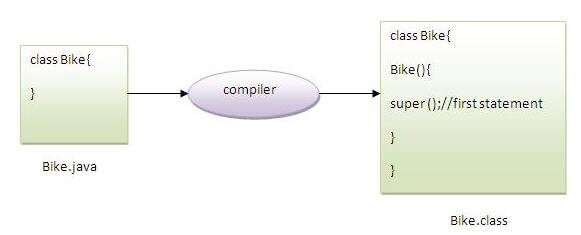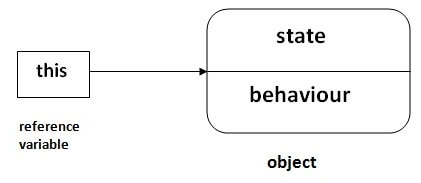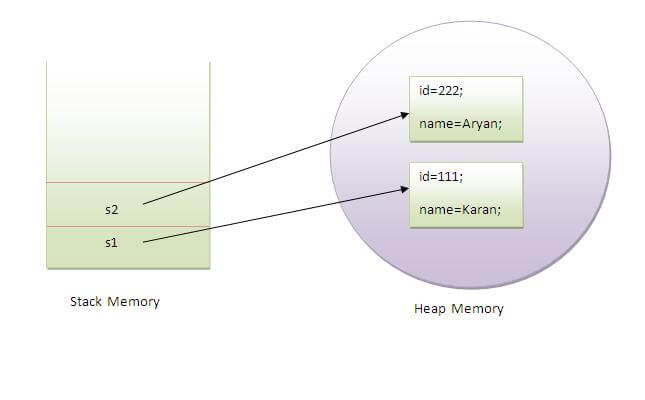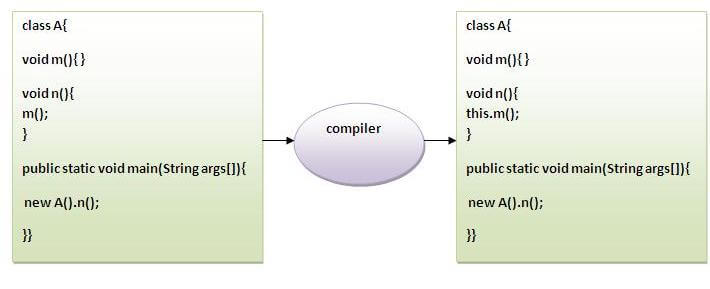1) Can abstract class have constructors in Java?
Yes, abstract class can declare and define constructor in Java. Since you can not create instance of abstract class, constructor can only be called during constructor chaining, i.e. when you create instance of concrete implementation class. Now some interviewer, ask what is the purpose of constructor, if you can not instantiate abstract class? Well, it can still be used to initialize common variables, which are declared inside abstract class, and used by various implementation. Also even if you don’t provide any constructor, compiler will add default no argument constructor in abstract class, without that your subclass will not compile, since first statement in any constructor implicitly calls super(), default super class constructor in Java.
2) Can abstract class implements interface in Java? does they require to implement all methods?
Yes, abstract class can implement interface by using implements keyword. Since they are abstract, they don’t need to implement all methods. It’s good practice to provide an abstract base class, along with an interface to declare Type. One example of this is java.util.List interface and corresponding java.util.AbstractList abstract class. Since AbstractList implements all common methods, concrete implementations like LinkedList and ArrayList are free from burden of implementing all methods, had they implemented List interface directly. It’s best of both world, you can get advantage of interface for declaring type, and flexibility of abstract class to implement common behavior at one place. Effective Java has a nice chapter on how to use interface and abstract class in Java, which is worth reading.
3) Can abstract class be final in Java?
No, abstract class can not be final in Java. Making them final will stop abstract class from being extended, which is the only way to use abstract class. They are also opposite of each other, abstract keyword enforces to extend a class, for using it, on the other hand, final keyword prevents a class from being extended. In real world also, abstract signifies incompleteness, while final is used to demonstrate completeness. Bottom line is, you can not make your class abstract and final in Java, at same time, it’s a compile time error.
4) Can abstract class have static methods in Java?
Yes, abstract class can declare and define static methods, nothing prevents from doing that. But, you must follow guidelines for making a method static in Java, as it’s not welcomed in a object oriented design, because static methods can not be overridden in Java. It’s very rare, you see static methods inside abstract class, but as I said, if you have very good reason of doing it, then nothing stops you.
5) Can you create instance of abstract class?
No, you can not create instance of abstract class in Java, they are incomplete. Even though, if your abstract class don’t contain any abstract method, you can not create instance of it. By making a class abstract, you told compiler that, it’s incomplete and should not be instantiated. Java compiler will throw error, when a code tries to instantiate abstract class.
6) Is it necessary for abstract class to have abstract method?
No, It’s not mandatory for an abstract class to have any abstract method. You can make a class abstract in Java, by just using abstract keyword in class declaration. Compiler will enforce all structural restriction, applied to abstract class, e.g. now allowing to create any instance. By the way, it’s debatable whether you should have abstract method inside abstract class or interface. In my opinion, abstract class should have abstract methods, because that’s the first thing programmer assumes, when he see that class. That would also go nicely along principle of least surprise.
7) Difference between abstract class and interface in Java?
This is the most important and one of the classic Java Interview question. I don’t know, how many times I have seen this question at all most all levels of Java interviews. One reason, which makes this question interesting is ability to produce example. It’s easy to answers questions on core OOPS concepts like Abstraction, Encapsulation, Polymorphism and Inheritance, but when it comes to subtle points like this, candidate more often fumbled. You can see this post for all syntactical difference between abstract class and interface, but it deserve a post on it’s own.
8) When do you favor abstract class over interface?
This is the follow-up of previous interview questions on abstract class and interface. If you know syntactical difference, you can answer this question quite easily, as they are the one, which drives the decision. Since it’s almost impossible to add a new method on a published interface, it’s better to use abstract class, when evolution is concern. Abstract class in Java evolves better than interface. Similarly, if you have too many methods inside interface, you are creating pain for all it’s implementation, consider providing an abstract class for default implementation. This is the pattern followed in Java collection package, you can see AbstractList provides default implementation for List interface.
9) What is abstract method in Java?
An abstract method is a method without body. You just declare method, without defining it and use abstract keyword in method declaration. All method declared inside Java Interface are by default abstract. Here is an example of abstract method in Java
public void abstract printVersion();
Now, In order to implement this method, you need to extend abstract class and override this method.
10) Can abstract class contains main method in Java ?
Yes, abstract class can contain main method, it just another static method and you can execute Abstract class with main method, until you don’t create any instance.



